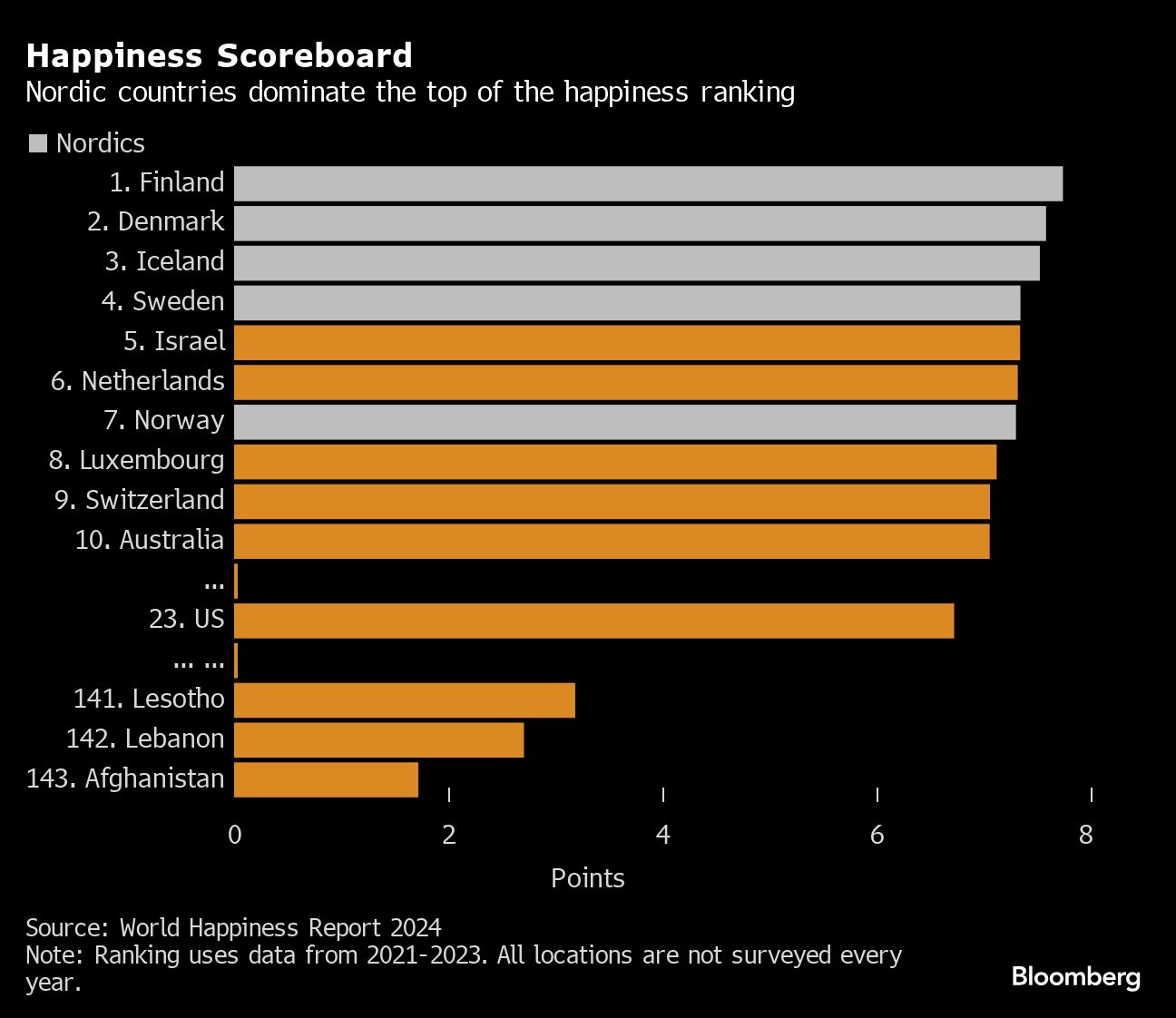Finland was crowned the world’s happiest country for the seventh consecutive year in the global life-satisfaction rankings, but a drop in living standards among young Americans meant the world’s biggest economy fell outside the top 20 for the first time.
Denmark and Iceland remained second and third, respectively, in The World Happiness Report unveiled on Wednesday by the United Nations Sustainable Development Solutions Network. The US fell to 23rd from 15th, “driven by a large drop in the wellbeing of Americans under 30,” the report said.

The list is based on factors such as gross domestic product, life expectancy, having someone to count on, a sense of freedom, generosity and perceptions of corruption. But, “the rankings themselves are based only on the answers people give when asked to rate their own lives,” according to the study.
Among specific age groups, Lithuania topped the ranking for children and people under 30, while Denmark is the world’s happiest nation for those 60 and older.
“In comparing generations, those born before 1965 are, on average, happier than those born since 1980,” the report said. “Among Millennials, evaluation of one’s own life drops with each year of age, while among Boomers life satisfaction increases with age.”
Millennials are generally people born between 1981 and 1996, while those born after World War II through 1964 are nicknamed baby-boomers.
Overall, the biggest increases in average life evaluation scores over the past roughly a decade are in Serbia, which climbed 69 places to rank 37th, and in Bulgaria, which rose by 63 levels to 81st. Latvia and the Republic of Congo have each advanced by more than 40 notches since 2013. Lebanon and Afghanistan came last, like last year.
The results are based on three-year averages, reducing the impact of changes over a single year. Not all countries are surveyed every year.
This article was provided by Bloomberg News.








